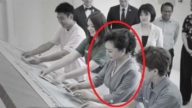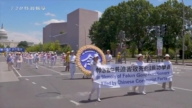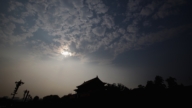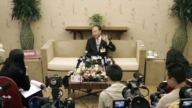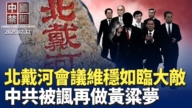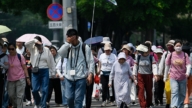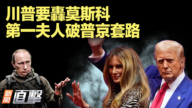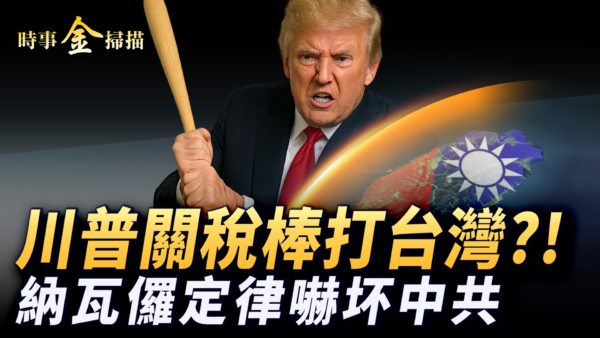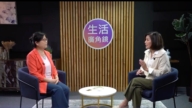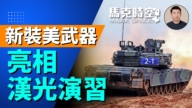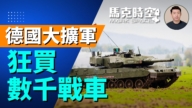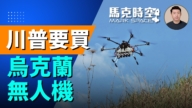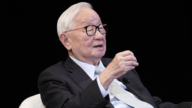【新唐人2013年07月15日讯】中共新任领导人习近平、李克强上台至今已有半年多,他们的执政走向日益引发外界关注。最近有大陆资深媒体人向外媒分析说,目前中共高层在幻想走一条与当年纳粹德国类似的“国家社会主义之路”。但中共近10年来暴力维稳打压出的7种新生反对力量,已经让中共陷入重重危机。下面请看报导。
日前,大陆资深媒体人、原《中国改革》杂志社社长李伟东在接受《法国国际广播电台》采访时表示,中国问题的根源是政治体制,但中共并不想进行改变,而是习惯采用高压方式来“维稳”,这使得中国大陆成为一个民怨沸腾的高压锅。最近10年来中共至少打压催生了7种新的反对力量,问题十分严重。
这7种反对力量包括:
一、多达几千万的失地农民。
二、退伍转业军人。
三、宗教反对力量。
四、边疆少数民族地区的反抗力量。
五、强拆、司法冤案以及下岗带来的大量上访人员。
六、不能充分就业的大学毕业生。
七、知识界。
原首都师范大学教育科学学院副教授李元华:“由于中共暴政的肆无忌惮,对各级百姓的迫害,使得大部分国民逐渐的觉醒,觉得不能再逆来顺受了。所以他们有一种意愿,要反抗这个暴政。”
深圳政论专栏作家朱健国也谈到,1999年以来,中共加强了对传媒的控制,这是新型反对力量产生的关键原因之一。
深圳政论专栏作家朱健国:“现在的关键问题就是要首先放开媒体、舆论、网路,但是他们现在还想把微博什么都控制死,这都是自己给自己来添油加火。”
《法广》报导,习近平上台半年来,中国的政治、经济两个领域出现不同的左右两个方向,李克强大力推动自由主义市场经济改革,但在政治领域,习近平推出的“梦论”、 “鞋论”和“三个自信”等说法,却明显带有国家主义、民族主义的倾向。这说明“习李体制”还没有形成,也说明在习近平的政改理念中,并无普世价值,政改目地无非是“加强党的领导”。
对此,中国社会问题研究人士张健向《新唐人》表示,实际上,中共一直在不断变换花样进行“政改”,但只要维持“一党独裁”,政改之路就根本走不通。
旅美中国社会问题研究人士张健:“无论习近平提出什么各种各样的论调都走不通。因为中共建政以来的无数次运动都是一种政改,我们都认为可以叫做一个政改,包括文化大革命,它也是一种政改。”
原“首都师范大学”教育科学学院副教授李元华也认为,目前对于习近平来说,实际上没有别的选择,只能是顺应解体中共的历史潮流。
李元华:“任何所谓的维护这个政党、使这个政党去延续,或者使得他自己的最高统治得以巩固,跟各利益集团角斗厮杀或者是利益交换,都是没有结果的。”
《法广》的报导还表示,习近平希望延续共产党执政和未来10年的平稳。中共目前走的是国家主义加民族主义的所谓“红色帝国之路”,也就是纳粹德国上世纪30年代的“国家社会主义之路”。李伟东强调指出,实际上这条路是走不通的,因为中共不愿顺应潮流进行根本的政治变革,这也使中国经济的危机将不断加重,社会前景堪忧。
采访/易如 编辑/李谦 后制/李智远
RFI: Seven Newborn Opposition Forces Are Born In China
The path to be taken for Xi Jinping and Li Keqiang has
become a focus of pubic attention in China and overseas.
Reportedly, China’s media professionals think that
the Chinese Communist Party(CCP) leadership seems
to be taking a road to National Socialism,
as Nazi Germany did, under Adolf Hitler.
In the past 10 years, the CCP’s violent suppression
has given rise to seven newborn domestic opposition forces.
China, in reality, has gotten bogged down in heavy crises.
Li Weidong, ex-president of China Reform magazine,
recently tells Radio France Internationale (RFI) that
the political system is the root cause of China’s problems.
Li points out that the CCP hasn’t really
launched its promised reform.
Instead, it gets used to using violence
to achieve “stability".
However, the approach has made Chinese society
a pressure cooker of resentment.
This has engendered seven new opposition forces
in the last 10 years, this is serious trouble, says Li.
The category covers the following seven opposition forces:
1. several tens of millions of landless peasants;
2. demobilized soldiers; 3. religious dissidents;
4. resistance forces in frontier minority areas;
5. large numbers of petitioners, provoked by forced
demolitions, judicial injustice, and laid-off workers;
6. underemployed college graduates;
7. intelligentsia.
Scholar of Chinese history, Li Yuanhua: “The CCP’s
tyrannical persecution has victimized the masses.
The public has now come to awaken, with a growing
disobedience, and a will to resist this tyranny."
Shenzhen-based columnist, Zhu Jianguo, comments.
Since 1999, the CCP has increased media control.
This is a contributing factor that has given rise to
new opposition forces, he says.
Zhu Jianguo:"It is now important to lift the ban on media
and the internet, and to allow freedom of expression.
But on the contrary, they now want to
control micro-blogging even more tightly.
All of these actions are only going to
speed up the demise of the regime."
RFI comments that, after Xi Jinping took over as President,
the paths of development in political and
economic areas have been taken differently.
Premier Li Keqiang has vigorously promoted
liberal market reforms.
Whilst politically, Xi has indulged in “Chinese Dream"talk,
The"If the Shoe Fits"speech,
and the “Three Self-confidences"theory.
His advocacies have shown the character of
statism and nationalism.
This means that a “Xi-Li System"
has not yet been formed.
It also illustrates clearly that Xi’s reform
idea doesn’t contain universal values.
The goal of his political reform is only to “reinforce
the Party’s leadership", according the RFI report.
Zhang Jian, researcher on China issues, says that the
regime has kept on varying the so-called “political reform".
If the CCP’s dictatorship is premised, its “political reform"
will never be feasible, he remarks.
Zhang Jian: “It won’t work no matter how Xi
puts forth his arguments.
The political movements launched by the CCP for
decades in China can all be called political reforms.
One of them, the Cultural Revolution,
was just another form of political reform."
Li Yuanhua agrees that Xi Jinping’s only way out is to
disintegrate the CCP, and to thus follow history’s trends.
Li Yuanhua: “It’s futile to make an effort to keep CCP rule.
So it will be fruitless to battle with privileged groups
for political power or for political trade-offs."
RFI also reports that Xi Jinping hopes that CCP rule
shall continue and even stabilize in the next 10 years.
RFI calls it “a path of the red empire",
featuring statism, with nationalism.
This is the same road of National Socialism,
adopted by Nazi Germany in the 1930s.
Li Weidong warns that history shows us that
it is a dead-end path.
Doing nothing about political reform will
worsen China’s economic crisis, he says,
and China may well face
progressively tougher times ahead.


